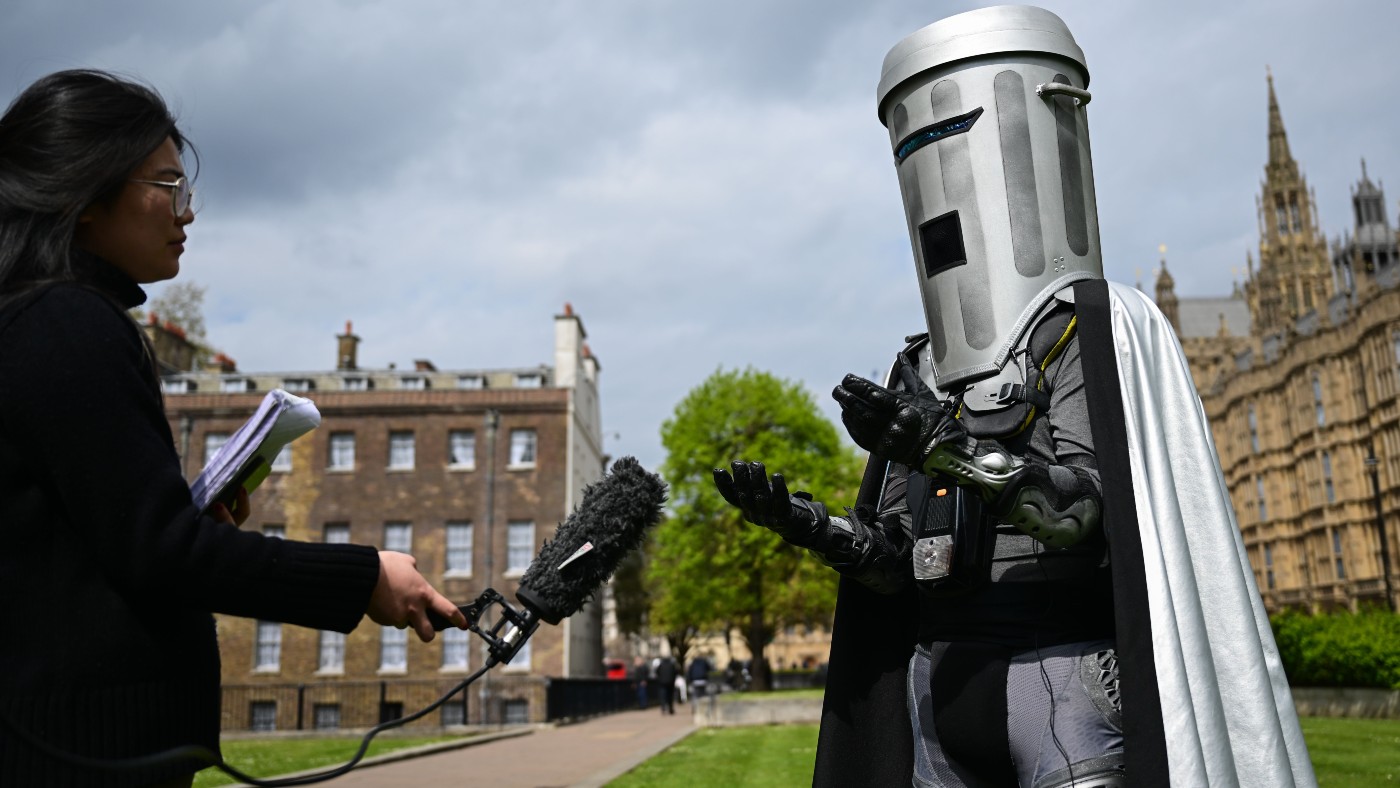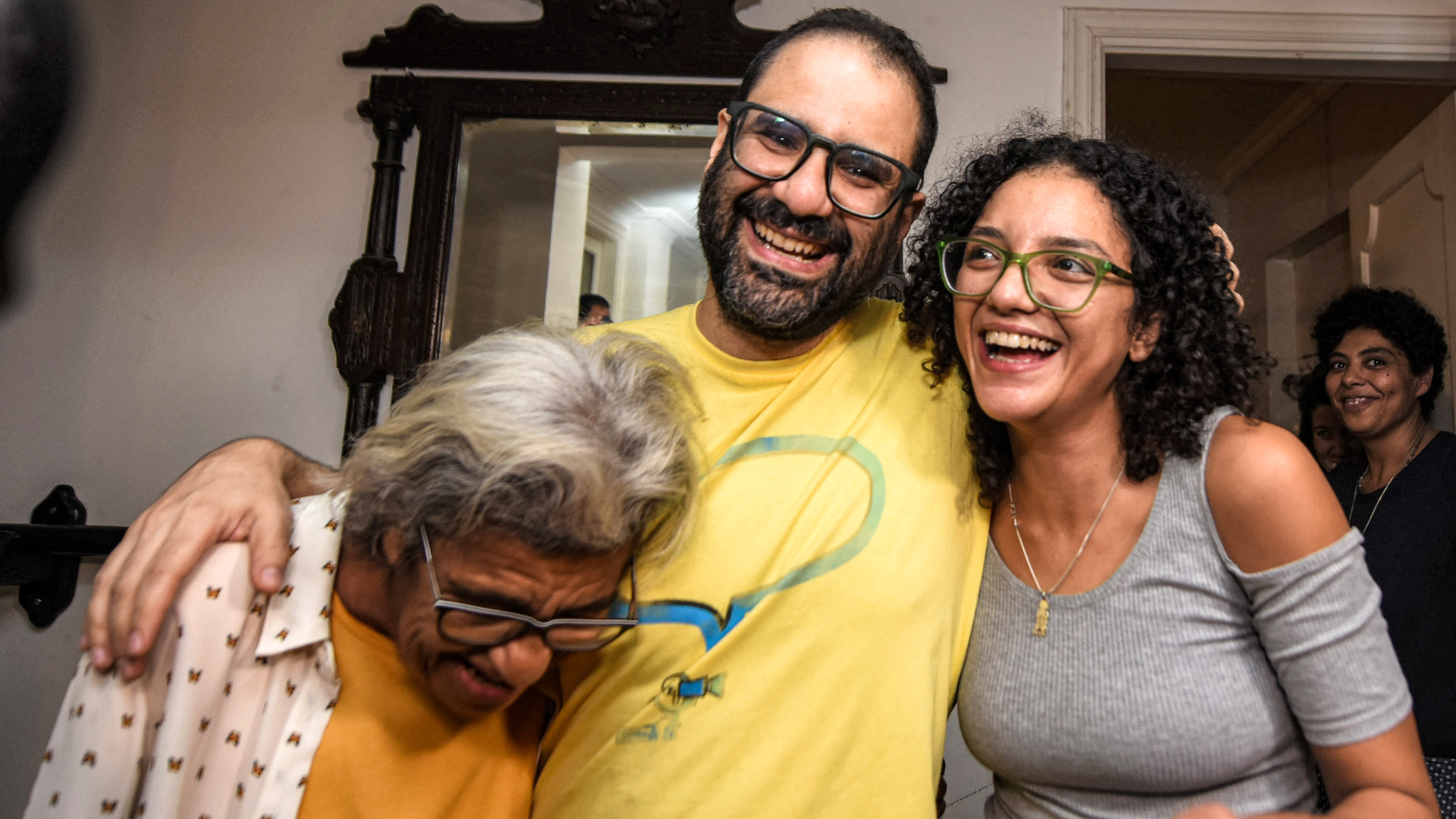From party colours to Count Binface: your quirky election questions answered
Why are elections held on a Thursday and why do we use pencils?

A free daily email with the biggest news stories of the day – and the best features from TheWeek.com
You are now subscribed
Your newsletter sign-up was successful
The UK heads to the ballot boxes on Thursday for the long-awaited general election.
The polls suggest a triumphant night for Labour and Keir Starmer, while Conservative leader Rishi Sunak could be about to preside over an "an extinction-level event for Britain’s oldest and most electorally successful party", said The Guardian.
But election time means a number of quirky traditions, from party colours to comedy candidates. Here are some of the questions you may need answered.
The Week
Escape your echo chamber. Get the facts behind the news, plus analysis from multiple perspectives.

Sign up for The Week's Free Newsletters
From our morning news briefing to a weekly Good News Newsletter, get the best of The Week delivered directly to your inbox.
From our morning news briefing to a weekly Good News Newsletter, get the best of The Week delivered directly to your inbox.
Why are elections held on Thursdays?
Since 1931, general elections have been held on a Thursday. Theories vary as to how this tradition began. The most popular is that Thursdays were chosen to avoid the influence of two forces: the Church and the pub.
It's thought that Fridays were ruled out because people might be more interested in going to the pub than casting their vote and Sundays were also avoided because of a fear that churchgoers "might be swayed by what they heard from the pulpit", said the BBC.
Traditionally, Thursday was a market day, so more people would be going into town that day, making it easier for them to pop into the polling station. Later, Thursdays became early closing day for many shops, and this strengthened the tradition as it meant more people could easily cast their votes.
Why are Labour red and Conservatives blue?
Radical left-wingers adopted a red flag during the 1848 French revolution to symbolise "the blood of angry workers" and it quickly became the colour of the political left, including the Labour Party when it was founded in 1900. Under Tony Blair, the party briefly flirted with a different colour, adopting purple during its 1997 general election broadcasts.
A free daily email with the biggest news stories of the day – and the best features from TheWeek.com
Originally, the Conservatives used the colours of the Union Jack – red, white and blue – but when Labour adopted red, the Tories limited themselves to blue. The formula of red for the more left-leaning party and blue for the right is seen in many countries. A rare exception is the US, where the Democrats are blue and the Republicans are red.
Why do we use pencils in voting booths?
Pens are not provided as there is a risk that they may run out of ink or the ink may leak. Also, explained the Electoral Commission, the ink may cause some transfer of the mark the voter has made on the ballot paper when they fold it, "potentially leading to a rejection" as "it may look like they have voted for more options than they are entitled to".
That said, there is nothing to stop you from bringing your own pen to mark your vote as there is no legal requirement for ballot papers to be marked with a pencil.
What happens if there's a tie?
If the top two candidates get the same number of votes, the returning officer will decide how to choose a winner. This could mean pulling a name out of a hat or even tossing a coin.
Tied votes are rare but in 2017, the Conservatives lost the chance to gain control of Northumberland County Council after they tied with the Liberal Democrats in a crucial ward. The two candidates drew straws after two recounts in South Blyth, and the Liberal Democrats' Lesley Rickerby won after she drew the long straw.
Who is Count Binface?
As the result is called in his Richmond and Northallerton constituency, Rishi Sunak will share the stage with a number of colourful characters: a candidate from the Monster Raving Loony Party, Count Binface and a YouTube prankster.
The "intergalactic space warrior" Count Binface is the "brainchild" of comedy writer and performer Jon Harvey, said The Guardian. In 2017, he debuted as Lord Buckethead, challenging Theresa May in Maidenhead. Two years later, as Count Binface, he ran against Boris Johnson in Uxbridge and South Ruislip.
For general elections, there is a £500 deposit required from candidates, and only those who gain at least 5% of the vote get their deposit returned. Most joke candidates "profoundly fail", said the BBC, including Catherine Taylor-Dawson, who stood for Vote For Yourself Rainbow Dream Ticket in Cardiff North in 2005 and received just one vote.
What ID will I need to vote?
Acceptable forms of ID include a passport, driving licence, Proof of Age Standards Scheme cards, Blue Badges and some concessionary travel cards. Ministers said they intend to make veterans' ID cards a valid form of voter identification after former service personnel were turned away from polling stations at local elections in May.
Can I take a selfie as I vote?
No, you shouldn't take selfies inside the polling station as it might put the secrecy of the ballot at risk and you could end up breaking the law.
Also, sharing a photo of your ballot paper could put you in breach of the law and you could find yourself facing six months in prison if you inadvertently reveal how someone else has voted.
Chas Newkey-Burden has been part of The Week Digital team for more than a decade and a journalist for 25 years, starting out on the irreverent football weekly 90 Minutes, before moving to lifestyle magazines Loaded and Attitude. He was a columnist for The Big Issue and landed a world exclusive with David Beckham that became the weekly magazine’s bestselling issue. He now writes regularly for The Guardian, The Telegraph, The Independent, Metro, FourFourTwo and the i new site. He is also the author of a number of non-fiction books.
-
 Political cartoons for February 15
Political cartoons for February 15Cartoons Sunday's political cartoons include political ventriloquism, Europe in the middle, and more
-
 The broken water companies failing England and Wales
The broken water companies failing England and WalesExplainer With rising bills, deteriorating river health and a lack of investment, regulators face an uphill battle to stabilise the industry
-
 A thrilling foodie city in northern Japan
A thrilling foodie city in northern JapanThe Week Recommends The food scene here is ‘unspoilt’ and ‘fun’
-
 The Mandelson files: Labour Svengali’s parting gift to Starmer
The Mandelson files: Labour Svengali’s parting gift to StarmerThe Explainer Texts and emails about Mandelson’s appointment as US ambassador could fuel biggest political scandal ‘for a generation’
-
 Will Peter Mandelson and Andrew testify to US Congress?
Will Peter Mandelson and Andrew testify to US Congress?Today's Big Question Could political pressure overcome legal obstacles and force either man to give evidence over their relationship with Jeffrey Epstein?
-
 Reforming the House of Lords
Reforming the House of LordsThe Explainer Keir Starmer’s government regards reform of the House of Lords as ‘long overdue and essential’
-
 How long can Keir Starmer last as Labour leader?
How long can Keir Starmer last as Labour leader?Today's Big Question Pathway to a coup ‘still unclear’ even as potential challengers begin manoeuvring into position
-
 What is at stake for Starmer in China?
What is at stake for Starmer in China?Today’s Big Question The British PM will have to ‘play it tough’ to achieve ‘substantive’ outcomes, while China looks to draw Britain away from US influence
-
 Can Starmer continue to walk the Trump tightrope?
Can Starmer continue to walk the Trump tightrope?Today's Big Question PM condemns US tariff threat but is less confrontational than some European allies
-
 Three consequences from the Jenrick defection
Three consequences from the Jenrick defectionThe Explainer Both Kemi Badenoch and Nigel Farage may claim victory, but Jenrick’s move has ‘all-but ended the chances of any deal to unite the British right’
-
 Alaa Abd el-Fattah: should Egyptian dissident be stripped of UK citizenship?
Alaa Abd el-Fattah: should Egyptian dissident be stripped of UK citizenship?Today's Big Question Resurfaced social media posts appear to show the democracy activist calling for the killing of Zionists and police